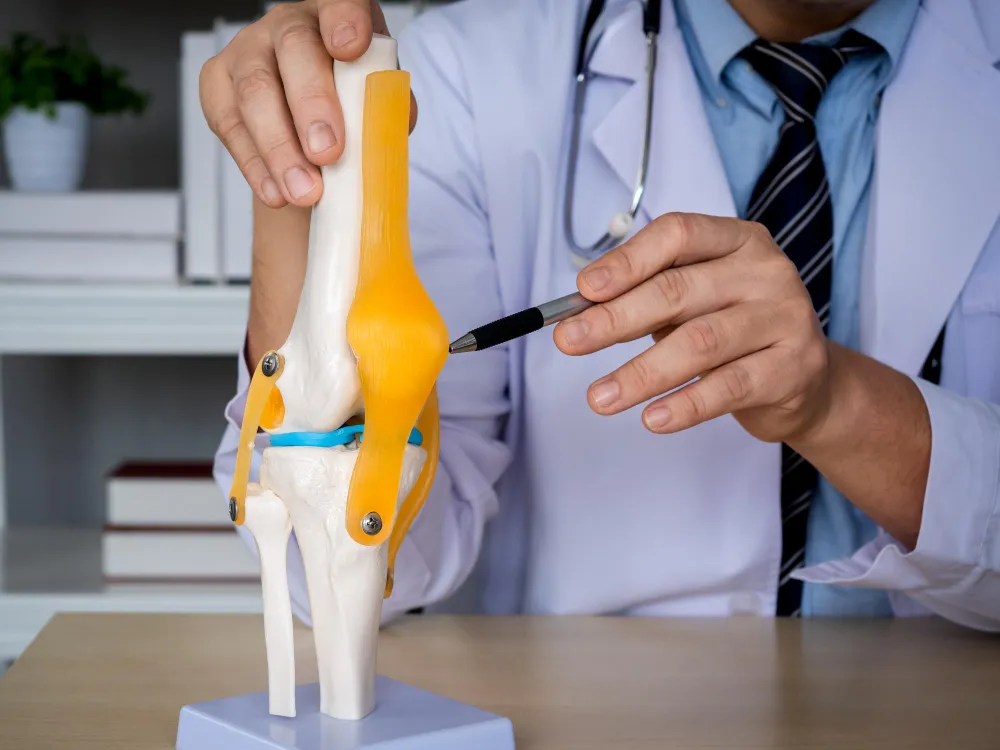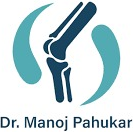Best Treatment for Joint Pain in Nagpur
Expert orthopedic care with advanced treatments and personalized recovery plans to relieve pain, restore mobility, and help you live actively again.
Treatment for Joint Pain in Nagpur
Joint pain is a common issue that affects people of all ages, significantly impacting mobility and quality of life. Whether caused by arthritis, injury, aging, or underlying medical conditions, joint pain should never be ignored. If you are looking for the best treatment for joint pain in Nagpur, Dr. Manoj Pahukar offers expert care, advanced treatments, and personalized recovery plans to help you regain an active and pain‑free life.
With a focus on accurate diagnosis and targeted therapies, treatment aims not just to relieve pain but also to address its root cause. From preventive strategies to advanced surgical options, each care plan is designed to restore movement, prevent recurrence, and enhance overall joint health.

Understanding Joint Pain - Causes & Symptoms
Joint pain can affect people of all ages, often limiting movement and reducing quality of life. Recognizing the underlying causes and associated symptoms is essential for timely diagnosis and effective treatment.
Common Causes of Joint Pain
- Osteoarthritis: The most common form of arthritis, leading to cartilage degeneration.
- Rheumatoid Arthritis: An autoimmune disorder causing joint inflammation and stiffness.
- Injury or Trauma: Fractures, sprains, or ligament tears from accidents or sports.
- Gout & Other Inflammatory Conditions: Accumulation of uric acid crystals in joints, causing severe pain.
- Bursitis & Tendinitis: Inflammation of the soft tissues around the joints.
- Post‑Surgical Joint Pain: Pain that persists after a joint surgery or replacement.
Symptoms of Joint Pain
- Swelling, redness, and tenderness around the joint
- Stiffness, making it difficult to move
- Sharp or dull aching pain
- Cracking or popping sounds while moving the joint
- Weakness or instability in the affected area
Best Treatments for Joint Pain by Dr. Manoj Pahukar
Advanced orthopedic solutions are offered to relieve pain, restore mobility, and protect long‑term joint health. Treatment is tailored to the cause and severity of the condition, ensuring effective recovery for each patient.
Non-Surgical Treatments
Medication Therapy
- Pain Relievers & Anti‑Inflammatory Drugs: Reduce swelling and discomfort.
- Steroid Injections: Effective for severe arthritis and inflammation.
- Hyaluronic Acid Injections: Provide lubrication to joints, reducing stiffness.
Physiotherapy & Rehabilitation
- Customised exercise programs to strengthen muscles around the joint.
- Manual therapy & mobility exercises for improved joint function.
- Hydrotherapy & electrotherapy for pain relief.
Lifestyle & Dietary Modifications
- Weight management to reduce stress on joints.
- Diet rich in Omega‑3 fatty acids, calcium, and vitamin D for joint health.
- Use of orthopedic braces and support devices to improve stability.
Regenerative Medicine (PRP & Stem Cell Therapy)
- Platelet‑Rich Plasma (PRP) Therapy: Uses the body’s own healing cells to repair joint damage.
- Stem Cell Therapy: Promotes regeneration of damaged tissues.
Minimally Invasive Treatments
Arthroscopic Surgery
- Keyhole surgery for ligament tears, cartilage damage, and inflammation.
- Shorter recovery time and minimal scarring.
Joint Preservation Techniques
- Cartilage restoration procedures to delay or prevent joint replacement.
- Osteotomy Surgery: Corrects misalignment and distributes weight evenly on the joint.
Surgical Treatments for Severe Joint Pain
Joint Replacement Surgery
- Total Knee Replacement (TKR): Best solution for end‑stage arthritis.
- Total Hip Replacement (THR): Restores mobility and eliminates pain.
- Shoulder & Elbow Replacement: For severe arthritis or fractures.
- Partial Joint Replacement: Preserves healthy joint tissue while replacing damaged sections.
Joint Fusion Surgery
- Ideal for severe arthritis and deformities in smaller joints like the wrist, ankle, or fingers.
- Provides long‑term stability and pain relief.
Why Choose Dr. Manoj Pahukar for Joint Pain Treatment in Nagpur
Selecting the right orthopedic specialist can make all the difference in achieving lasting pain relief, restored mobility, and improved quality of life.
- Extensive Experience: Over 23 years of expertise in diagnosing and treating a wide range of orthopedic conditions.
- World‑Class Treatment Facilities: Fully equipped with advanced surgical technology and modern rehabilitation centers.
- Personalized Approach: Tailored treatment plans designed for effective pain management and optimal recovery.
- Proven Success Rates: Thousands of patients have regained mobility and returned to an active lifestyle.
- Latest Medical Advancements: Incorporation of robotic surgery, minimally invasive techniques, and regenerative medicine.
- Comprehensive Care: Complete support from diagnosis to rehabilitation, ensuring long‑term joint health.
Every treatment is guided by a commitment to precision, compassion, and achieving the best possible outcome for each patient.
Consult Dr. Manoj Pahukar for the Best Joint Pain Treatment in Nagpur
If you or your loved one is experiencing joint pain, stiffness, or mobility issues, don’t wait for the condition to worsen. Early diagnosis and timely treatment can help prevent further damage, avoid surgery in many cases, and restore an active, pain‑free lifestyle.
Frequently Asked Questions
When should joint pain be considered a medical emergency?
If joint pain is sudden, severe, accompanied by swelling, deformity, inability to move the joint, or follows an injury, seek immediate medical attention. These could indicate fractures, dislocations, or infections.
Can untreated joint pain lead to permanent damage?
Yes. Ignoring persistent joint pain can result in worsening of the underlying condition, such as cartilage loss, joint deformity, or reduced mobility, making future treatment more complex.
Are there specific risk factors that increase the chances of developing joint problems?
Yes. Age, repetitive joint stress, previous injuries, obesity, certain autoimmune conditions, and family history can all increase the risk of joint issues.
How can I protect my joints during daily activities?
Maintain proper posture, use supportive footwear, avoid repetitive strain, strengthen surrounding muscles, and take regular breaks during activities that put pressure on joints.
Is exercise safe if I have ongoing joint pain?
Low‑impact exercises like swimming, cycling, and walking are often safe and can help maintain flexibility and strength. It’s important to follow a program recommended by a healthcare professional to avoid further strain.

